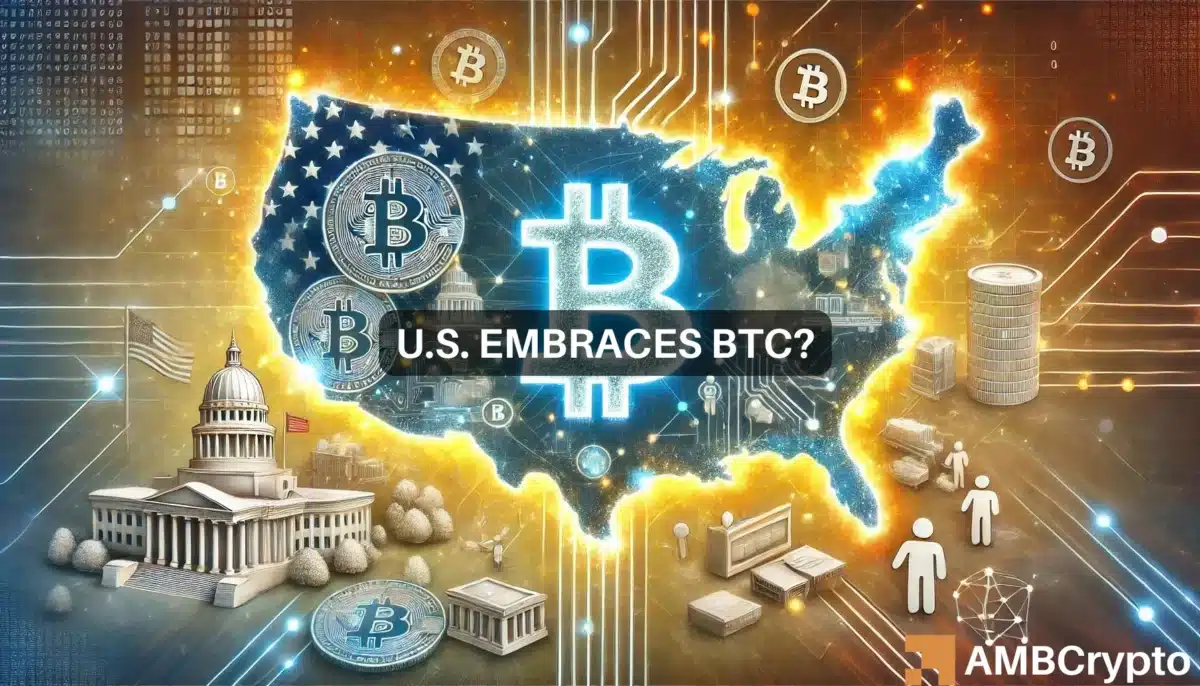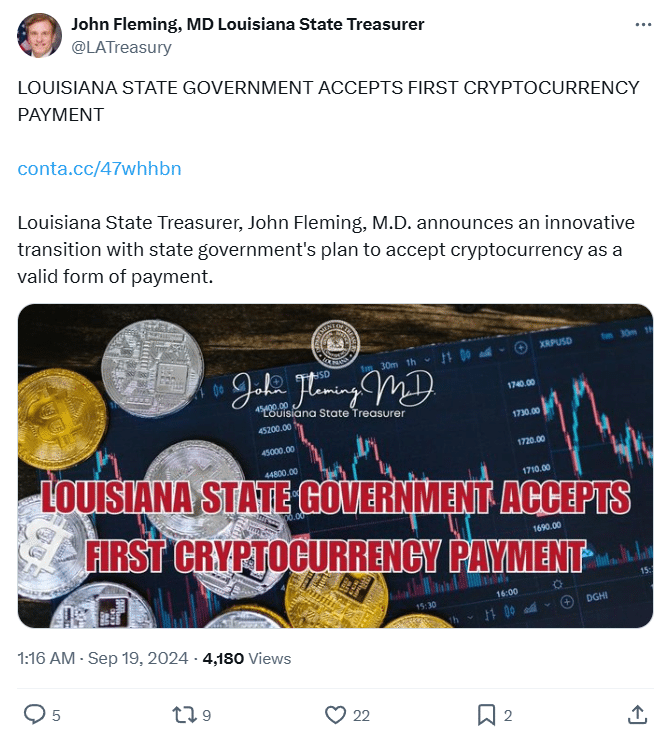Bitcoin Lightning powers Louisiana’s first-ever crypto payment

- State Treasurer John Fleming revealed residents can pay for state services using Bitcoin Lightning.
- This initiative highlighted the future of digital transactions.
In a historic move for the state, Louisiana has officially taken its first cryptocurrency payment using the Bitcoin Lightning Network.
This development follows the announcement by the state’s Treasurer John Fleming, who revealed that Louisiana residents would now have the option to pay for state services using cryptocurrencies such as Bitcoin[BTC], and USD Coin [USDC].

Source: X
This initiative reflects a growing trend of cryptocurrency adoption for everyday transactions, positioning Louisiana at the forefront of government-led digital payment systems in the U.S.
The Growing Trend of Cryptocurrency for Public Services
The acceptance of crypto payments for state services in Louisiana marks a significant step toward normalizing digital currencies in everyday financial operations.
By incorporating Bitcoin and USDC as payment options, Louisiana aims to offer its residents more flexibility in handling their financial obligations to the state. Whether it’s paying taxes, fees, or other government-related expenses, citizens can now settle payments via cutting-edge technology.
This underscores the state’s commitment to making cryptocurrency payments practical and seamless. The Lightning Network helps alleviate the slower transaction speeds and higher fees traditionally associated with Bitcoin, which may have discouraged its use in everyday transactions.
Initiatives before Bitcoin Lightning
Louisiana isn’t the first government entity to explore the benefits of cryptocurrency. In 2021, Miami made headlines when it began accepting Bitcoin as payment for taxes and municipal fees.
Similarly, Ohio briefly allowed businesses to pay Bitcoin taxes, although the program was eventually paused. These initiatives, though early and experimental, laid the groundwork for broader acceptance of cryptocurrencies in official channels.
What sets Louisiana’s initiative apart is the emphasis on using stablecoins like USDC in addition to Bitcoin. USDC’s value is pegged to the U.S. dollar, making it less volatile than Bitcoin, which experiences significant price fluctuations.
By allowing payments with a stablecoin, Louisiana is addressing one of the major concerns surrounding the use of crypto in government payments — the risk of currency value swings.
A Path Toward Reduced Fraud and Enhanced Flexibility
One of the key reasons for this shift is the potential to reduce fraud. This transparency and traceability make it more difficult for fraudulent transactions to go unnoticed.
As Louisiana moves toward modernizing its payment systems, this added security feature will likely serve as a major benefit, reducing the risk of corrupt practices or unauthorized transactions in state services.
Implications for the Industry
Louisiana’s move could set a precedent for other states considering similar options. By adopting crypto payments, governments open the door to the mainstream use of digital assets, pushing the broader financial industry to innovate and create more user-friendly crypto solutions.
If successful, this program could encourage more states to embrace digital currencies, potentially speeding up the adoption of crypto for everyday transactions nationwide.
Thus, Louisiana’s acceptance of crypto payments is more than just a financial experiment, it’s a step toward the future of digital transactions.
As more states and governments explore the potential of cryptocurrency, the mainstream use of digital currencies could soon become a reality.

![Uniswap [UNI] price prediction - Why altcoin's next run depends on $16-level](https://ambcrypto.com/wp-content/uploads/2025/01/Erastus-21-min-400x240.png)




